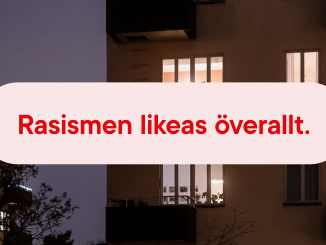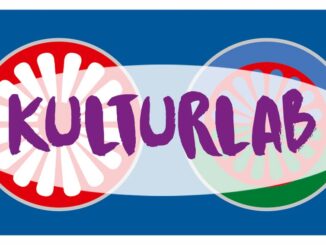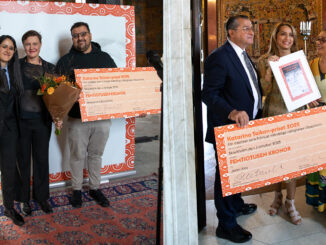
The 10th meeting of the Council of Europe’s Steering Committee on Anti-Discrimination, Diversity and Inclusion (CDADI) that concludes today in Paris has adopted the feasibility study on desegregation and inclusion policies and practices in the field of education for Roma and Traveller children. The study highlights the grounds on which separation of Roma children from their non-Roma peers at school may occur, gives an overview of the multiple forms of educational segregation and provides recommendations for stakeholders from Council of Europe member States on the legal framework and monitoring of segregation; on antigypsyism, residential segregation and poverty; as well as on educational policies.
The study is based on desk research, interviews with NGOs and a survey of 17 member States (the responses were submitted by Austria, Azerbaijan, Bosnia and Herzegovina, Bulgaria, Croatia, Cyprus, Finland, France, Greece, Hungary, Republic of Moldova, Norway, Poland, Portugal, Slovak Republic, Sweden, Switzerland, and Türkiye).
The feasibility study acknowledges that, although segregation of Roma is increasing, a sizeable number of Roma children manages to access mainstream education against the odds and without benefiting from policy interventions. Such positive educational outcomes are the result of the Roma using their own strategies to confront racism, discrimination and educational inequality, the study says.
A common thread in all forms of educational segregation of Roma and Traveller children is the uneven distribution of Roma and Traveller students across schools and classes. Thus, education systems that segregate Roma and Traveller children from their peers fail in their mission of promoting equality and inclusion, and do not adequately mirror the social, economic and cultural diversity. “In all of its forms, the educational segregation of Roma and Traveller children results in reduced opportunities for social and educational interactions among children from diverse cultural and socio-economic backgrounds”, the study reads. The likelihood of school-related interethnic socialisation among children and young adults decreases with age.
“Low quality of education is an intrinsic part of educational segregation”, the study stresses. “Segregated education means poor infrastructure, low teacher expectations and qualifications and low school achievements”. Inclusion of Roma children in the formal education process as early as possible is seen by the respondents of the survey as a key measure for preventing school segregation. The study recommends legally prohibiting segregated educational settings, in particular at the beginning of primary and secondary education.
Educational desegregation has not reached a systemic level and has not been part of integrated policies, concludes the study. Clear definitions of school segregation and desegregation are lacking for most of the responding countries: among the respondent states, only Romania and recently Spain and the Slovak Republic have adopted a legal definition of school segregation within their education law. The study recommends developing such a definition. Furthermore, except for Croatia, responding countries have not regularly monitored the educational segregation of Roma children. Besides, as barriers towards the equal access of Roma to inclusive quality education are complex (antigypsyism, residential segregation and poverty), educational desegregation should be seen as a long-term process.
Investments in inclusive high-quality education for all, including for Roma and Traveller children is also a sustainable investment in social and economic terms, as educational attainment tends to be transferred intergenerationally. An important way of curbing intergenerational educational segregation is tertiary (post-secondary) education because Roma university graduates act as role models in their families and communities. Some countries have implemented specific policies to increase the participation of Roma in higher education through systems of scholarships and accommodation support.
The findings of the study are expected to contribute to a possible Committee of Ministers Recommendation on the topic of desegregation and inclusion policies and practices in the field of education of Roma and Traveller children.
redaktionen@dikko.nu
Att vara en oberoende tidning kostar pengar därför använder vi oss av crowdfunding. Det innebär att människor med små eller stora summor hjälper till att finansiera vår verksamhet. Magasin DIKKOs insamlingen sker via swish: 123 242 83 40 eller bg: 5534-0046
Vill du annonsera eller sponsra, synas eller höras i våra media?
Kontakta oss på redaktionen@dikko.nu
eller ring 0768 44 51 61
IBAN: SE19 9500 0099 6042 1813 4395
BIC: NDEASESS




